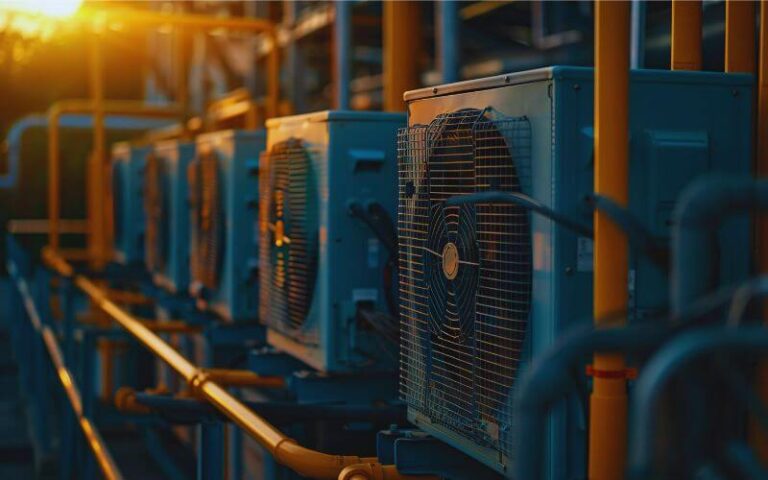Environmental control units (ECUs) are essential tools used to regulate temperature, humidity, air quality, and other environmental factors within controlled settings. These systems are vital in a wide range of industries, ensuring optimal conditions for productivity, safety, and quality control. By tailoring environments to specific requirements, ECUs contribute to consistent performance, reduce waste, and enhance overall operational efficiency.
This article explores how ECUs function, their applications across industries, and the benefits they offer.
Understanding Environmental Control Units
An environmental control unit is a sophisticated system designed to manage and maintain specific environmental parameters. These units often include advanced sensors, temperature control mechanisms, and air filtration systems. The purpose of an ECU is to ensure a stable environment by responding to fluctuations that could otherwise compromise processes or product quality.
For example, in a pharmaceutical laboratory, an ECU prevents contamination by maintaining strict temperature and humidity levels. Similarly, in data centers, ECUs protect servers from overheating, ensuring uninterrupted operations. By providing precise control, ECUs serve as a cornerstone for efficiency in environments where small changes can have significant consequences.
Key Industries That Benefit From ECUs
Environmental control units are essential in industries where precision and consistency are critical. They ensure optimal conditions that support productivity, safety, and compliance with industry standards.
Military Applications
In military operations, the environmental control unit is indispensable for maintaining optimal conditions in extreme environments. These systems regulate temperature and air quality in mobile command centers, field hospitals, and storage units for sensitive equipment. For instance, ECUs are often deployed in desert operations to prevent overheating of critical communication and weapon systems.
The reliability of military environmental control units ensures that personnel and equipment perform efficiently, even in challenging climates. This critical role highlights their importance in supporting mission success and operational readiness.
Healthcare and Pharmaceuticals
The healthcare sector relies on ECUs to maintain sterile conditions and regulate air quality. In hospitals, these units are critical in operating rooms and isolation wards to prevent infection. Meanwhile, pharmaceutical manufacturers use ECUs to create controlled environments for drug formulation and storage.
For example, vaccines often require storage at specific temperatures. An ECU ensures these conditions are met, reducing the risk of spoilage. Without reliable environmental control, patient safety and product efficacy could be compromised.
Food and Beverage
The food and beverage industry depends on ECUs to maintain quality and safety standards. Perishable goods like dairy products and fresh produce require precise temperature and humidity levels during storage and transportation. ECUs help manufacturers comply with regulations and ensure customer satisfaction.
Consider a cold storage facility that houses seafood. Without proper environmental control, even slight temperature variations could lead to spoilage, resulting in financial losses and reputational damage. ECUs minimize these risks by providing consistent conditions.
Manufacturing
Manufacturers across various sectors utilize ECUs to optimize production processes. Electronics manufacturing, for instance, requires dust-free and temperature-controlled environments to ensure the integrity of sensitive components. Similarly, automotive assembly lines depend on stable conditions to achieve precise outcomes.

An example includes semiconductor production, where even a minor change in humidity can damage delicate circuits. By employing ECUs, manufacturers can safeguard their products and maintain operational efficiency.
Industries that rely on precision and quality control find immense value in ECUs. These systems play a critical role in addressing challenges and sustaining smooth operations across diverse sectors.
Advantages of Environmental Control Units
Environmental control units offer numerous benefits that drive efficiency and reliability in various industries. Their ability to maintain optimal conditions supports smooth operations and compliance with critical standards.
Improved Productivity
ECUs enable organizations to create optimal working conditions for employees and equipment. Comfortable environments reduce downtime and enhance workforce efficiency. For instance, factories that maintain consistent temperatures often report fewer equipment malfunctions and higher output.
Cost Savings
Although installing an ECU may involve an initial investment, the long-term savings are significant. By reducing energy waste and preventing damage to equipment or products, ECUs minimize expenses associated with repairs, replacements, and wasted resources.
Regulatory Compliance
Many industries operate under strict environmental regulations. ECUs help businesses meet these standards by providing accurate monitoring and control. This is particularly important in sectors like healthcare and food production, where non-compliance can lead to fines or closures.
The advantages of ECUs go beyond maintaining environments—they also enhance productivity, save costs, and ensure adherence to regulatory demands. These systems are vital for businesses aiming to achieve efficiency and consistency.
Choosing the Right ECU for Your Needs
Selecting the appropriate ECU depends on factors such as industry requirements, facility size, and specific environmental challenges. Businesses should assess their operational needs and consult with experts to determine the most suitable system. Factors like energy efficiency, scalability, and maintenance requirements should also be considered.
For example, a small laboratory may need a compact, energy-efficient ECU, while a large-scale manufacturing plant might require a high-capacity system with advanced monitoring capabilities. By tailoring the unit to their needs, organizations can maximize efficiency and minimize costs.
Conclusion
Environmental control units are indispensable tools that support efficiency, safety, and quality across various industries. From healthcare to manufacturing, these systems create stable environments that enable businesses to thrive.
By understanding their applications and benefits, organizations can leverage ECUs to optimize operations and reduce costs. As technology continues to advance, ECUs are likely to become even more versatile, cementing their importance in the modern industrial landscape.


